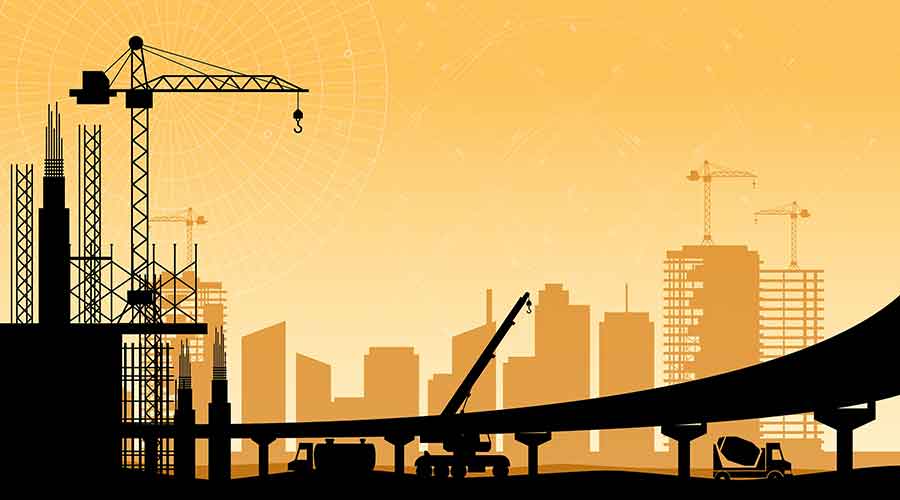The unprecedented impact of Covid-19 globally as well on India has been severe disruption in normal functioning of almost all sectors. As we stand with bated breath amid new hopes and high expectations, there are nascent signs that the economy may be on a better footing than what it was in the year gone by.
In this backdrop, the finance minister has laid down several measures to boost the Indian economy by focusing on infrastructure, healthcare, agriculture, rural economy, thus putting it back on the growth trajectory.
Real estate
According to the existing provisions of the income tax law, tax incentive is provided to companies engaged in the business of developing and building affordable houses subject to the condition that the project shall be approved by 31 March 2021.
The period of approval of the project has now been proposed to be extended to March 2022. This move is in alignment to the government’s goal of “Housing for All” and is expected to promote affordable housing projects. This shall provide impetus to developers to further build housing projects for migrant labourers.
The sunset date for sanction of home loan to be taken by individuals for acquisition of residential house property under affordable housing projects has been further extended till March 31, 2022, thereby enabling individuals to claim deduction of interest on home loan. This has given a significant push to first-time home buyers.
Infrastructure
Adequate funds have been allocated towards infrastructure by aiming completion of national highways, planning more economic corridors and development of roads.
According to the existing income tax law, deduction of tax at source on payment of dividends to residents, being certain insurance companies or insurers, was not required. However, this benefit has now been extended to income credited or paid to a business trust by a special purpose vehicle.
Infrastructure debt fund shall now be eligible to issue zero coupon bonds, thereby enabling inflow of funds for development of infrastructure projects.
Earlier, only infrastructure company/infrastructure capital fund/public sector companies/scheduled banks could issue ZCBs.
Debt financing of InVITs and REITs by foreign portfolio investors will be enabled by making suitable amendments in the relevant legislations. This will ease the access of finance to InVITS and REITs, augmenting funds for infrastructure and real estate.
Automobile
The government has introduced the much-awaited vehicle scrappage policy, hoping to phase out the unfit, inefficient and polluting vehicles aged over 20 years in case of private vehicles and 15 years in case of commercial ones.
The policy is in line with promoting fuel efficient and environment friendly vehicles which would help lower pollution levels and also lower oil import bills.
Cash less economy
The current government has been at the forefront of promoting digital economy and has taken various steps to encourage digital transactions and discourage the use of cash, both for large and small value transactions.
Continuing with their objective, there has been an increase in the limit for tax audit to Rs 10 crore (from the existing threshold of Rs 5 crores) for those taxpayers who carry out 95 per cent of their transactions digitally.
Amidst expectations of proposals to boost the tourism, hospitality and pharma sectors, the same has been untouched by the budget.With the proactive measures taken by the government, industry believes that the economic slowdown will be overcome and a gradual recovery will soon be in place.
Start ups
Under the current tax regime, start-ups with turnover upto INR 100 crores shall be eligible for 100% tax exemption for three consecutive assessment years out of first ten years.The date of incorporation of eligible start-ups in order to claim exemption from income tax has been further extended to 31 March 2022. Also, similar extension has been made for transfer of residential property, the proceeds of which would be utilised in investment in eligible start-ups.
The tax incentives given to start-ups shall facilitate the growth of aspiring entrepreneurs in their initial phase of business. The set-up of new start-ups shall be instrumental in bringing back the sloping Indian economy back on track.
Other significant proposals
The Central Government has consciously adopted a policy to make the processes under the Act, which require interface with the taxpayer, fully faceless. In this backdrop, new schemes for faceless assessment, for faceless appeal at the level of Commissioner (Appeals) and for faceless imposition of penalty have already been made operational. In addition thereof, steps have now been taken towards making appellate proceedings before income tax appellate tribunal in a digitalised format by reducing the need for unnecessary hard copies of notices, submissions,which shall ensure further transparency.
To reduce litigation for small taxpayers, a Dispute Resolution Committee shall be constituted, which shall again be faceless to ensure efficiency, transparency and accountability. Any taxpayer with a taxable returned income of upto INR 50 lakhs and disputed income of upto INR 10 lakhs shall be eligible to approach the Committee.
Amidst expectations for proposals boosting the tourism, hospitality and pharma sector, the same has been untouched by the budget.With the proactive measures taken by the Government, industry believes that the economic slowdown will be overcome, and a gradual recovery will soon be in place.
- Analysis by Dinesh Agarwal, tax partner, EY India











